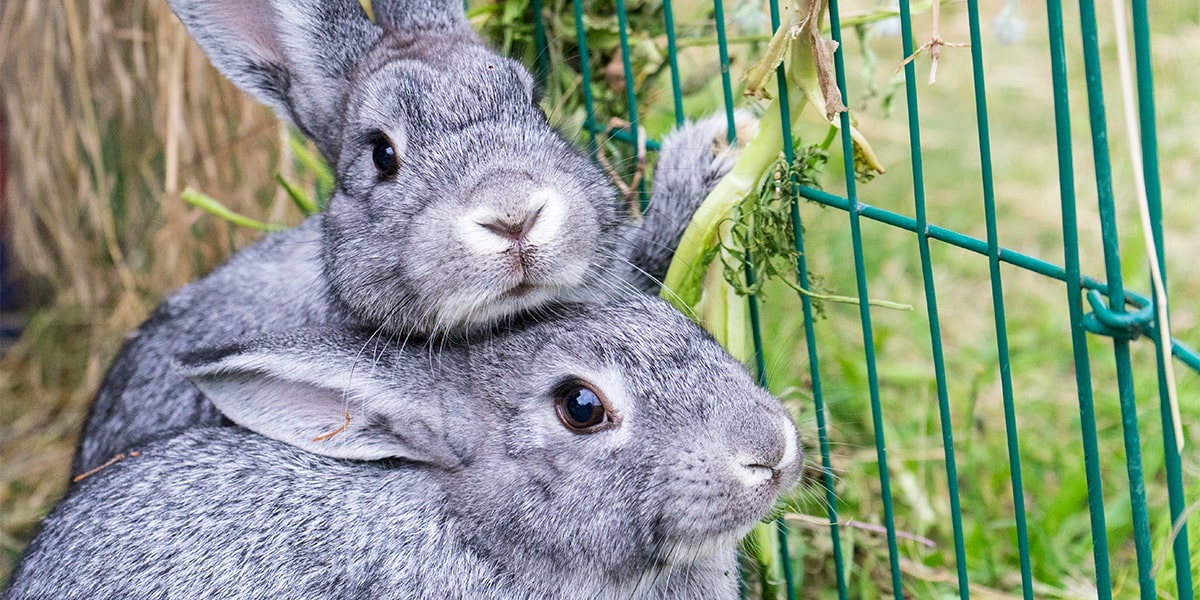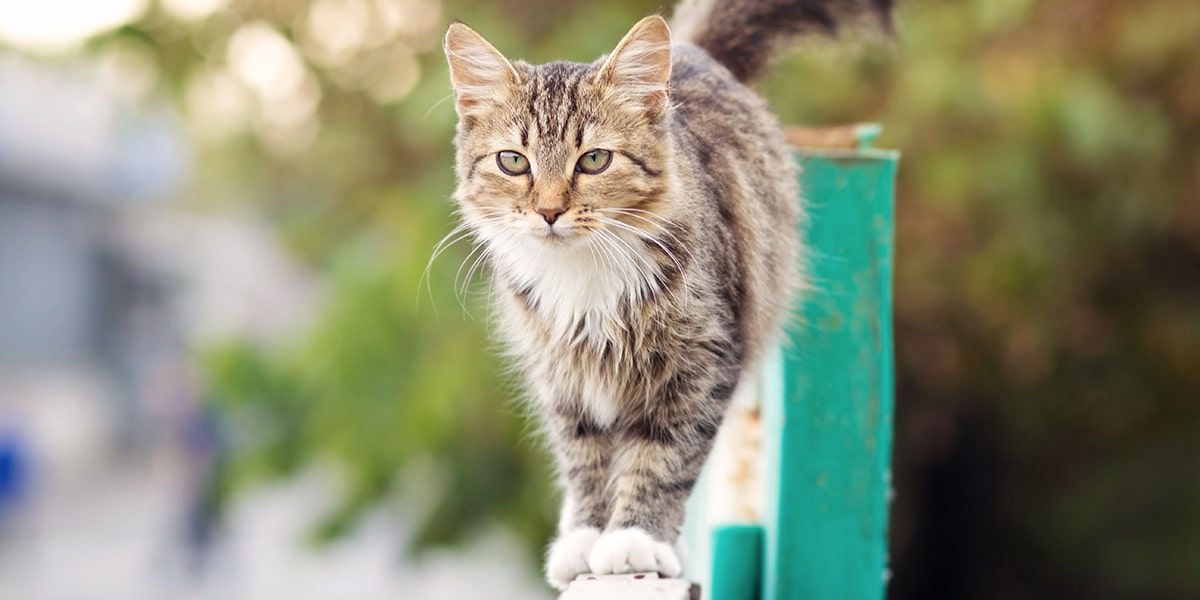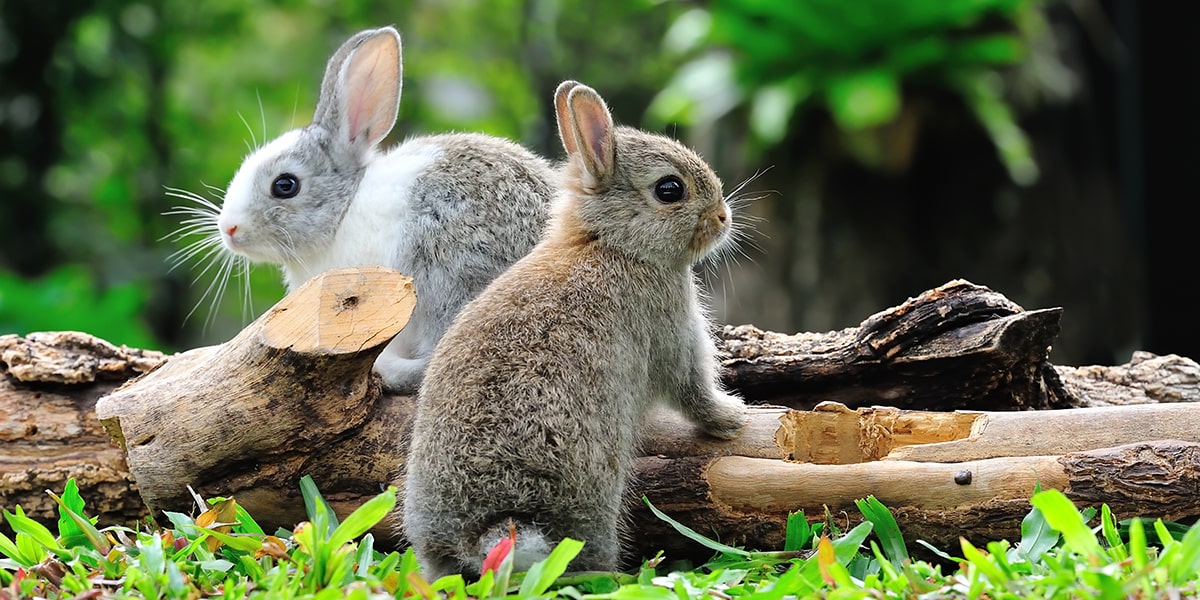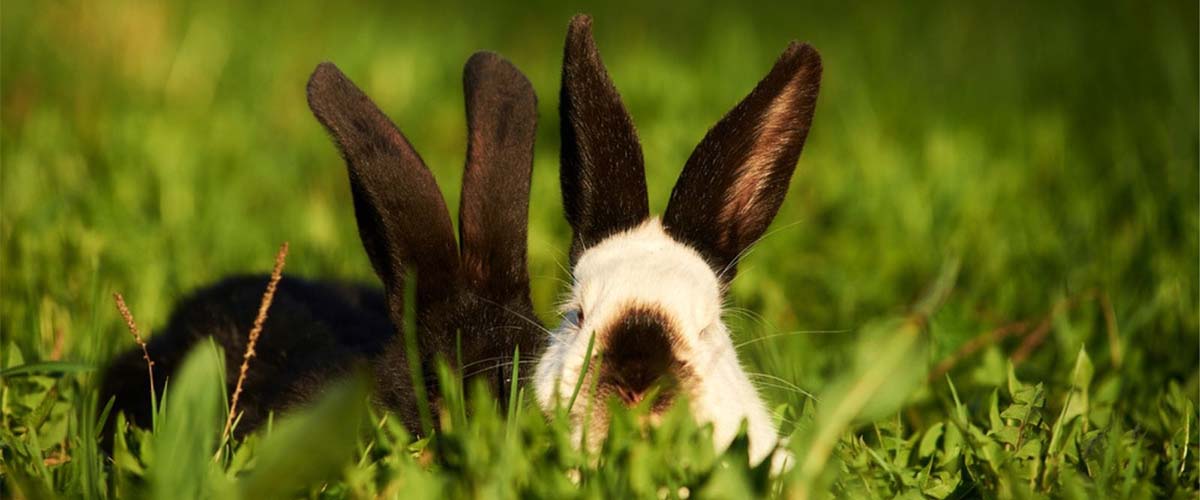How to make your garden safe for rabbits
Our rabbits need plenty of space and time to run around. If you want to let your rabbits play freely in the garden rather than in a run, there’s some things you’ll need to think about to keep them safe.
If you plan on letting your rabbits run freely in your garden at certain times, you need to make sure it’s safe, secure and very much bunny-proof! Don’t forget that rabbits are brilliant escape artists, so you’ll need to create a secure environment with plenty for your rabbits to do so they don’t get bored and start testing the perimeter. Also, you’ll need to make sure nobody else can get in, whether that’s wild rabbits who can spread disease or predators who’ll see your pets as a tasty snack.
Our vets have put their top tips together for creating a rabbit-proof garden that’ll keep your bunnies happy and safe.
Remove anything dangerous

This one sounds a little obvious but, as well as removing general garden hazards that could fall on or injure your bunnies, we’re also talking about plants. Rabbits love to dig and chew, so it’s important that you fill your garden with rabbit friendly plants that they can nibble on safely. There are lots of plants that can be harmful to our rabbits, but you need to be especially aware of anything growing from a bulb (snowdrops, daffodils etc.) and evergreen trees and shrubs. Look at our list of poisonous plants so you know what to be aware of throughout the year.
Rabbits will graze on grass (though they still need a supply of fresh hay) and do best with a mixed variety of grasses rather than a picture-perfect lawn. If you do cut the grass, keep the rabbits out of the way of the mower and never give them lawnmower cuttings as they rot very quickly and cause dangerous stomach upsets.
Some rabbit-friendly plants you can put in your garden include camomile, lavender, yarrow and sunflowers. If you’re good at growing vegetables, your rabbits will appreciate munching on cabbages and herbs, but not all of them are safe, so make sure you check our rabbit safe vegetables list. You could plant some especially for them but it might be a good idea to fence in your vegetable garden if there are some prize crops you don’t want them getting at! Many common garden ‘weeds’ are also great foods for rabbits, including clover, brambles, nettles, daisies and dandelions.
Be careful when using pesticides, weed killers, slug pellets and any other chemicals as they could seriously harm your rabbits as well as other wildlife and insects. Try to avoid using them in your garden, or make sure to keep your bunnies away from where they have been used.
Make your garden escape-proof

Rabbits are notorious escape artists! They are guaranteed to find any gaps in your garden and be straight through them and into the outside world. To keep them safe, you need to make sure there are no gaps around your garden fence they can escape from. We would recommend checking this regularly to make sure they haven’t gnawed any holes or started burrowing their way out. Ideally, fencing should be buried slightly or have a ‘skirt’ to prevent this.
While you’re rabbit-proofing your garden borders, be mindful of other wildlife. You might find that rather than giving your rabbits full run of your garden, it’s better to fence off a section so other wildlife (such as birds and hedgehogs) can pass through undisturbed.
If it’s impossible to completely escape-proof your garden and you can only manage a basic fence around it, then you need to keep a careful watch in case of any escape attempts or if they get themselves into trouble. But, if their environment is well prepared mishaps will be rare and your rabbits will benefit enormously from the opportunity to free-roam. Watching your rabbits be themselves is really entertaining and will help you bond with them just by being there with them. When you’re not able to watch them though, they’ll still need a large, escape-proof run that they have constant access to as well as their hutch.
Keep them safe from other predators

When you’re making your garden safe for your rabbits, it’s as much about keeping predators and wild rabbits out as it is about keeping your pets in. This is actually the most challenging part of giving your rabbits the run of the garden. You need to make sure that wherever your rabbits are roaming they're kept safe from predators who may see them as an easy target. Make sure their home will be safe and secure. If they are in your garden during the day, make sure they have safe places to run and hide if they need to.
Think about how you can use suitable fencing and netting to stop the likes of cats and foxes (for example, with tall, secure fencing with an angled section at the top) as well as birds of prey (including using netting to prevent them from diving into your garden). If it’s impossible, an option might be to give your rabbits free-roam of the garden while supervised but pop them back in their enclosure (with enough space and attached run) when you can’t be around to keep an eye on them. Your presence in the garden can deter any would-be predators (and you can keep an eye out for neighbourhood cats who may see your rabbits as easy targets).
You also need to make sure that where your rabbits roam, wild rabbits can’t. Wild rabbits can carry harmful diseases that can be passed to our bunnies. If you have mesh fences where rabbits could have nose-to-nose contact, build another fence half a metre beyond it to make sure that any wild rabbits can’t touch noses with your bunnies to spread diseases. Always make sure your rabbits are fully vaccinated before letting them roam around in your garden.
Keep them safe from the weather

Our rabbits are more sensitive to changes in the weather than we are, especially the heat. It’s important that if your rabbits are hopping around freely in the garden, they still have access to sheltered areas so they can escape hot weather or rain and storms and have access to water and food wherever they choose to retreat. They’ll need constant access to their hutch, shed or enclosure in case they want to be inside.
Keep an eye on your rabbits for signs of heatstroke and flystrike during the summer. Both can be fatal to rabbits so it’s vital to act straight away if you think one of your rabbits may be suffering from heatstroke.
Make sure they have enough toys

Although your rabbits may be perfectly happy to hop around your garden and explore and eat, you should still make sure they have lots to keep them occupied. A bored bunny may look for escape routes, so the more you can give them to do the better! There are lots of toys you can make for your rabbits at home, even if you just pop some cardboard boxes around the garden with holes in for your rabbits to run through or go the whole hog and create a custom ‘warren’ out of wide piping connected to chambers.
Lookout spots are also great fun for rabbits as they can leap up and down, on and off them and explore. Providing both high lookout points and low tunnels and hiding spots gives them the option to do whatever makes them feel safer.

